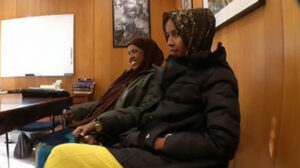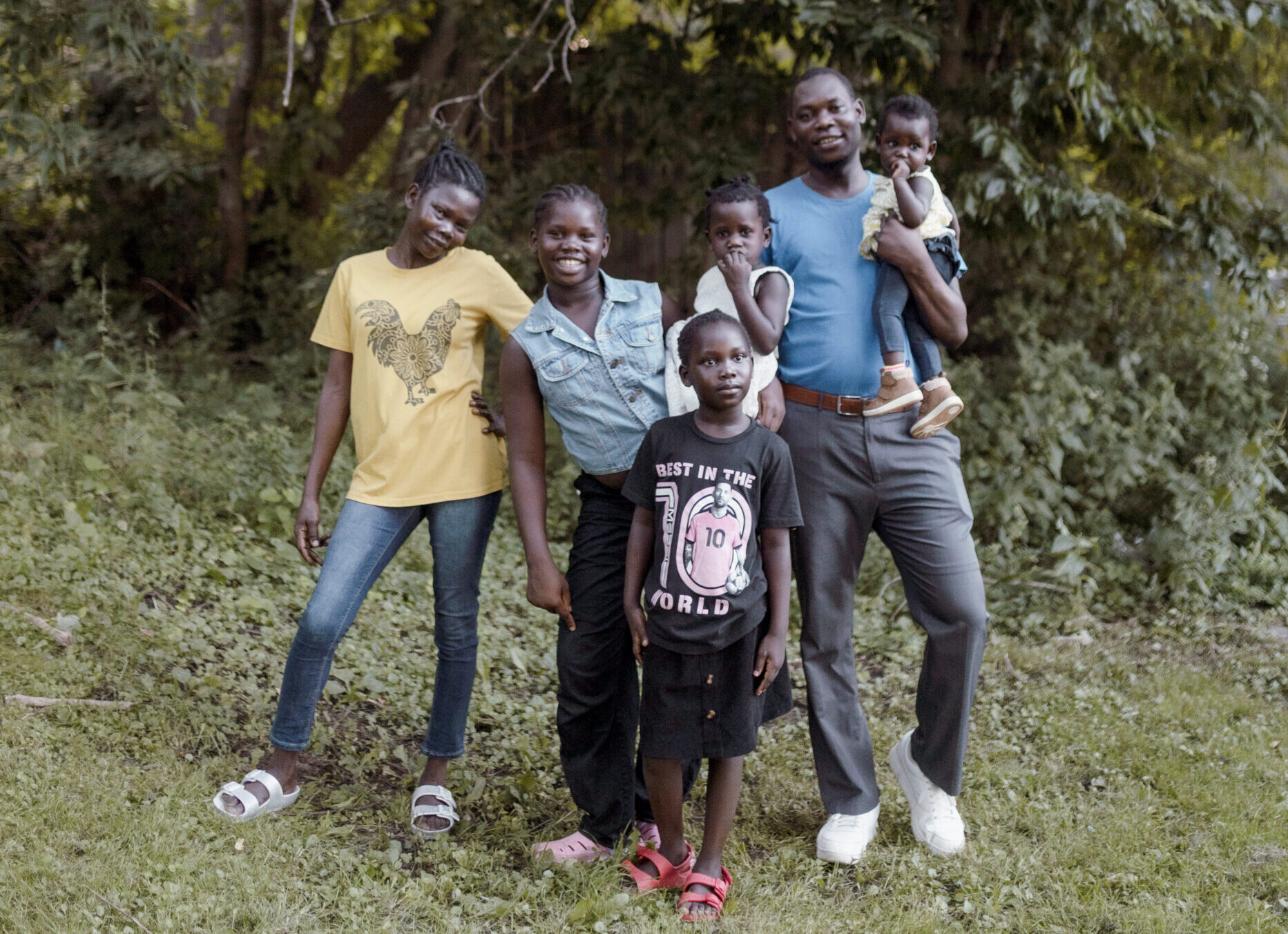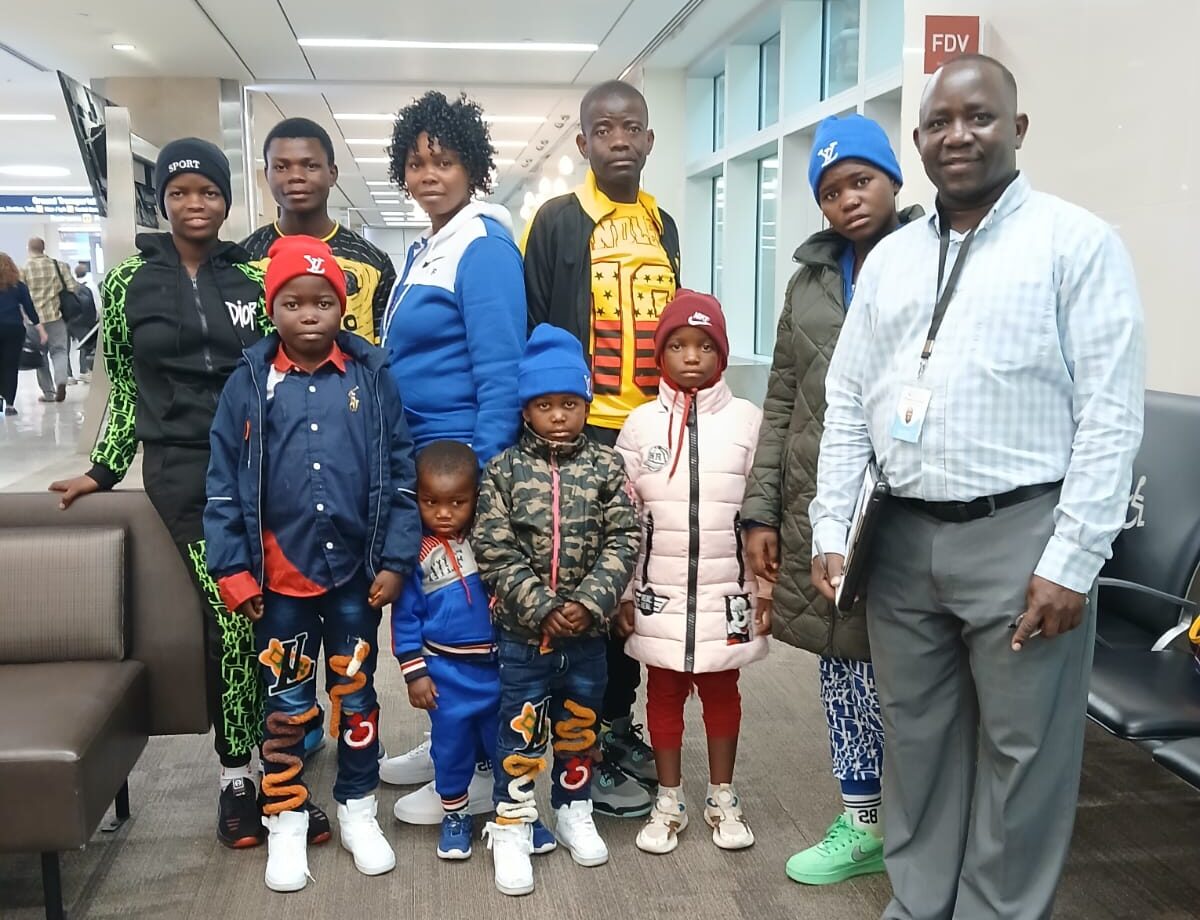A KSTP-TV (ABC) news story about refugee resettlement in the Twin Cities and Arrive Ministries’ work. They featured one of our new friends, from a refugee camp in Ethiopia, who we welcomed two days before Christmas.
Watch KSTP-TV News Story: 2,500 New Refugees Will Call Minnesota Home in 2017
December 28, 2016
Minnesota will be the land of freedom for 2,500 refugees by the end of 2017. Refugees have been coming to the state for several weeks now. More will keep coming throughout the next several months.
But that pipeline could be delayed, or stopped if President-elect Donald Trump enforces his proposed ban on Muslims coming into the country and changes the policy that allows refugees to resettle in the U.S.
Refugee advocates say that fear is sweeping through refugee communities. Refugee resettlement agencies are in limbo without clarity from Trump on what will change and how many people they would be able to help.
“Per capita we are the leading state,” Bob Oerig, head of Arrive Ministries in Richfield, said.
His agency is one of five refugee resettlement agencies in the Twin Cities that helps refugees find homes, jobs and essentials to make it. The federal government gives agencies a small grant to help the new immigrants.
Refugees have to pay back their airfare in the first six months they are in the U.S. They have to find work within the first year. “They come because of the jobs, we have the lowest unemployment rate of any major city in the U.S.,” Oerig said.
Without the help of Arrive and the other agencies, refugees like Sadiyo wouldn’t find the freedom and peace in Minneapolis. She and her six children arrived on the eve of Christmas Eve. She and her husband lived with gunfire and violence outside their home in Northern Somalia day and night. She said Al Shabaab terrorists were fighting government forces and peacekeepers in 2010.
“Al Shabaab ask them to follow them and whosoever refuses they kill them,” Sadiyo said. She was pregnant and taking care of her five children when the war outside broke the only security she had.
“My husband was killed,” she said.
Sadiyo said Al Shabaab killed her husband because he refused to fight for the terrorists. Sadiyo decided she couldn’t raise her children in the violence so she sold her only piece of jewelry to buy a car trip out of town for her and her five children.
She had heard United Nations Refugee Agency workers would help her if she could get to a refugee camp in Ethiopia. She and her children made it there in 2011. They lived in the camp for five years. She said she was happy to have peace.
This past year, the UN High Commission on Refugees, that vets refugees, told her she and her children could come to the United States. On the eve of Christmas Eve, Sadiyo and her children landed in Minneapolis.
Arrive Ministries workers were there to hug her. They’ll be resettling 400 people just like Sadiyo by next year. Oerig said refugees from Somalia, Myanmar (Burma) Iraq, Afghanistan and Eastern Europe make up most of the refugees coming to Minnesota.
He said there are only a handful of Syrians who came to Minnesota. He says the refugee agencies will continue to help the vulnerable, no matter what happens with national policy.
If the pipeline to the resettlement program for refugees is delayed or cut off, Oerig says the agencies still have other refugee programs that help integrate immigrants and those will still keep running.
Sadiyo said her hope and dream in America is to take her children to school, go to school herself to learn the language. Sadiyo and her children’s sixth night of freedom and peace is a long way away from the heartache she lived for so long.
The U.S. only accepts 110,000 of the 25 million refugees in the world. Oerig said they all need a safe place to go. He said if every person in Minnesota and Wisconsin had to leave their homes, it would equal the number of refugees who had to leave Syria to escape war and death.






